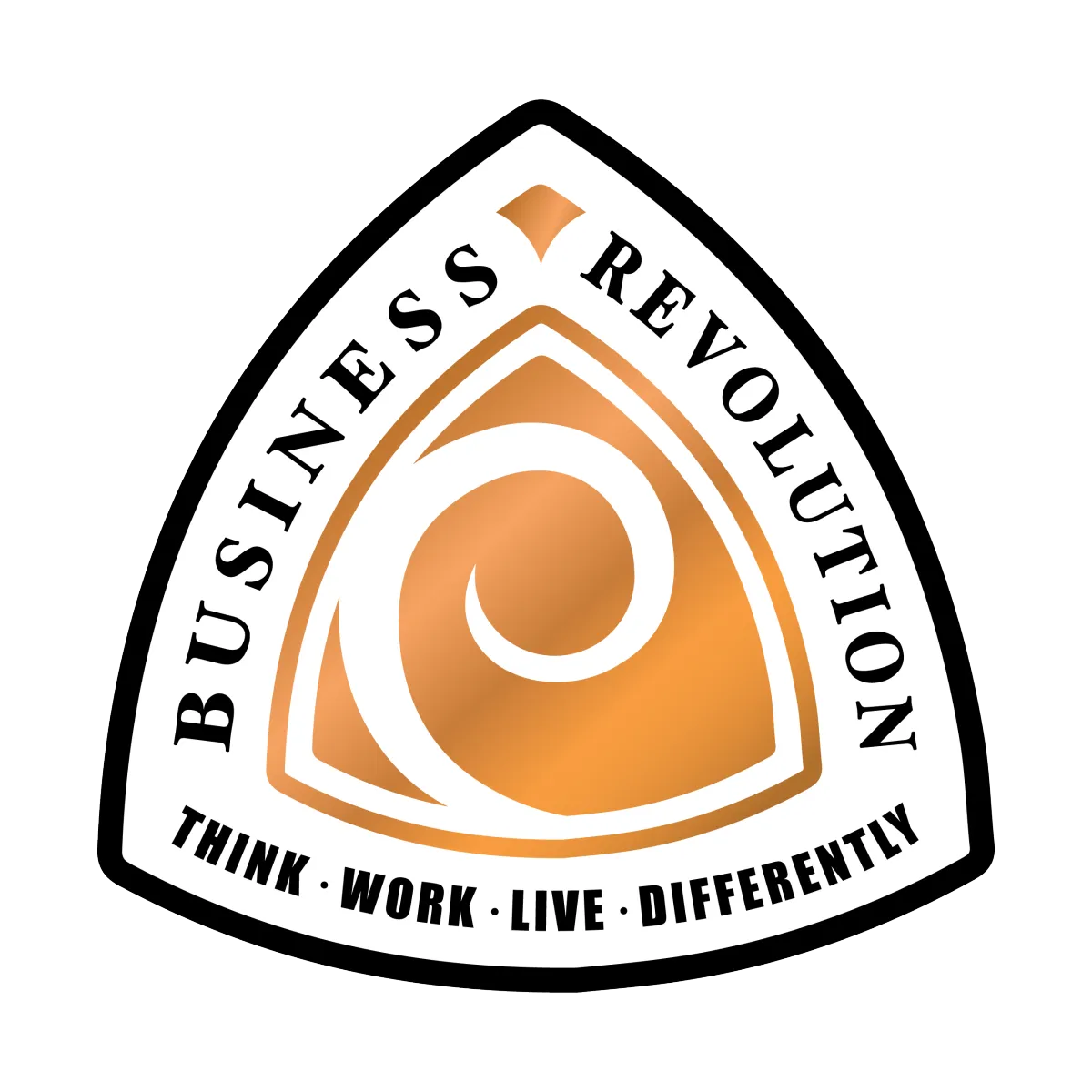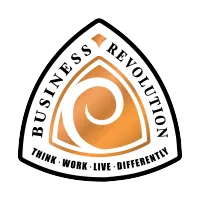
Blogs
Blogs
Here's the Latest

❤️ Embracing Authenticity
Our 12-Step Program for Imposter Syndrome!
When it comes to Imposter Syndrome, a lot of people believe that the only solution is to “fake it till you make it”. However, this couldn’t be further from the truth! The first step to overcoming Imposter Syndrome is to acknowledge that it exists and then to identify what makes you feel like an imposter.
This is where our 12-step program comes into play. We’ll guide you through the process of recognizing that you don’t have to be perfect, and show you how to embrace your authenticity to overcome imposter syndrome.
Step 1: Identify that you feel like an imposter.
The first step to overcoming imposter syndrome is identifying that you have it. This can be difficult for some people as they believe that they are not good enough, or that they are hiding a secret fear of not being deserving of success. Once you have identified that you have Imposter Syndrome, you are one step closer to overcoming it.
Step 2: Recognize that you aren’t.
The second step of our program is recognizing that you are not an imposter. This can be particularly challenging, as those with Imposter Syndrome often have a hard time accepting compliments or positive feedback. It is important, however, to remember that being human means making mistakes, and nobody is perfect!
Step 3: Pinpoint what makes you feel like an imposter.
By identifying the specific triggers that cause you to feel like an imposter, you can address them head-on. Whether it is a lack of experience or a fear of not being knowledgeable enough, being honest with yourself about what triggers those feelings can help you better manage them.
Step 4: Challenge those thoughts when they happen.
Challenge your thoughts whenever you start feeling like an imposter. Ask yourself: “Is this truly a reflection of my abilities?” or “Am I really an imposter or am I just feeling insecure?”. These kinds of self-reflection can help you question the validity of your thoughts and feelings, instead of dwelling on them.
Step 5: Embrace mistakes as a part of growth.
Mistakes are a natural part of growth and development. Instead of focusing on your imperfections, focus on what you learned from making those mistakes. Allow yourself to learn from them without personalizing them and using them as evidence that you are a failure.
Step 6: Talk about It.
Talking to someone you trust about your struggles with Imposter Syndrome can be a healing experience. Often, just getting it all out in the open can be enough to reduce the stress and anxiety it causes. A different perspective from someone you trust may also provide a needed insight.
Step 7: Set goals to boost confidence.
Establishing goals that will help you feel more confident in your abilities is a great way to overcome Imposter Syndrome. Whether it is developing a new skill or attending training, progress towards achieving these goals will boost your sense of self-worth and reduce feeling like a phony.
Step 8: Practice kind self-talk.
When you begin to feel like an imposter, replace these negative thoughts with kind self-talk. Compliment yourself regularly and remind yourself that making mistakes is a part of life. Practice these self-affirmations even if they feel forced in the beginning because, over time, they will become more natural.
Step 9: Allow and enjoy praise.
When others compliment you, don’t deflect or diminish their positive affirmations of you. Thank them graciously for their kind gesture and appreciate the acknowledgement.
Step 10: Get some professional development.
Consider attending a relevant industry conference, or hiring a tutor, or perhaps pursuing further accreditation. You will be able to develop your skills and feel more confident in your abilities.
Step 11: Journal your successes.
Keep a log of your progress and successes to look back on over time. Being able to see how far you have come in overcoming Imposter Syndrome will be an excellent reminder during the times when you feel the struggles again.
Step 12: Remind yourself that you belong.
Finally, remind yourself that you belong in your profession or industry. You’ve worked hard to get to this point, and you deserve to be here.
Overall, our 12-step program provides a practical guide to overcoming Imposter Syndrome. By acknowledging and addressing the causes, practicing self-affirming thoughts and continuously reminding yourself that you belong, you will be better equipped to embrace authenticity over feeling like a phony.
Remember, success comes from the courage to be vulnerable, accept where you are, and make positive changes toward where you want to be.
Next Blog

Here's What's New

❤️ Embracing Authenticity
Our 12-Step Program for Imposter Syndrome!
When it comes to Imposter Syndrome, a lot of people believe that the only solution is to “fake it till you make it”. However, this couldn’t be further from the truth! The first step to overcoming Imposter Syndrome is to acknowledge that it exists and then to identify what makes you feel like an imposter.
This is where our 12-step program comes into play. We’ll guide you through the process of recognizing that you don’t have to be perfect, and show you how to embrace your authenticity to overcome imposter syndrome.
Step 1: Identify that you feel like an imposter.
The first step to overcoming imposter syndrome is identifying that you have it. This can be difficult for some people as they believe that they are not good enough, or that they are hiding a secret fear of not being deserving of success. Once you have identified that you have Imposter Syndrome, you are one step closer to overcoming it.
Step 2: Recognize that you aren’t.
The second step of our program is recognizing that you are not an imposter. This can be particularly challenging, as those with Imposter Syndrome often have a hard time accepting compliments or positive feedback. It is important, however, to remember that being human means making mistakes, and nobody is perfect!
Step 3: Pinpoint what makes you feel like an imposter.
By identifying the specific triggers that cause you to feel like an imposter, you can address them head-on. Whether it is a lack of experience or a fear of not being knowledgeable enough, being honest with yourself about what triggers those feelings can help you better manage them.
Step 4: Challenge those thoughts when they happen.
Challenge your thoughts whenever you start feeling like an imposter. Ask yourself: “Is this truly a reflection of my abilities?” or “Am I really an imposter or am I just feeling insecure?”. These kinds of self-reflection can help you question the validity of your thoughts and feelings, instead of dwelling on them.
Step 5: Embrace mistakes as a part of growth.
Mistakes are a natural part of growth and development. Instead of focusing on your imperfections, focus on what you learned from making those mistakes. Allow yourself to learn from them without personalizing them and using them as evidence that you are a failure.
Step 6: Talk about It.
Talking to someone you trust about your struggles with Imposter Syndrome can be a healing experience. Often, just getting it all out in the open can be enough to reduce the stress and anxiety it causes. A different perspective from someone you trust may also provide a needed insight.
Step 7: Set goals to boost confidence.
Establishing goals that will help you feel more confident in your abilities is a great way to overcome Imposter Syndrome. Whether it is developing a new skill or attending training, progress towards achieving these goals will boost your sense of self-worth and reduce feeling like a phony.
Step 8: Practice kind self-talk.
When you begin to feel like an imposter, replace these negative thoughts with kind self-talk. Compliment yourself regularly and remind yourself that making mistakes is a part of life. Practice these self-affirmations even if they feel forced in the beginning because, over time, they will become more natural.
Step 9: Allow and enjoy praise.
When others compliment you, don’t deflect or diminish their positive affirmations of you. Thank them graciously for their kind gesture and appreciate the acknowledgement.
Step 10: Get some professional development.
Consider attending a relevant industry conference, or hiring a tutor, or perhaps pursuing further accreditation. You will be able to develop your skills and feel more confident in your abilities.
Step 11: Journal your successes.
Keep a log of your progress and successes to look back on over time. Being able to see how far you have come in overcoming Imposter Syndrome will be an excellent reminder during the times when you feel the struggles again.
Step 12: Remind yourself that you belong.
Finally, remind yourself that you belong in your profession or industry. You’ve worked hard to get to this point, and you deserve to be here.
Overall, our 12-step program provides a practical guide to overcoming Imposter Syndrome. By acknowledging and addressing the causes, practicing self-affirming thoughts and continuously reminding yourself that you belong, you will be better equipped to embrace authenticity over feeling like a phony.
Remember, success comes from the courage to be vulnerable, accept where you are, and make positive changes toward where you want to be.
Next Blog


Sign up for our FREE weekly newsletter and get a FREE GIFT!
Yes... 100% FREE GIFT!



Why Your 20% Matters More Than Anything Else
POSTED OCTOBER 1, 2023
In today's world, it's easy to feel like we're drowning in a sea of never-ending emails, tasks, and distractions.
Entrepreneur: What Does the “Future You” Look Like?
POSTED OCTOBER 1, 2023
As an entrepreneur, you are constantly striving to grow your business and reach your goals.
Rekindling Your 🔥 What SpongeBob Taught Us About Balancing Work and Passion
POSTED OCTOBER 1, 2023
As an entrepreneur, you are constantly striving to grow your business and reach your goals.



Is Self-Care Selfish?
POSTED OCTOBER 1, 2023
If you’re a Business Maverick and Movement Maker then you’re passionate about building your empire and chasing your dreams. You’re determined to make a difference in the world, and you’re willing to do whatever it takes to get there. You work long hours, manage your team, connect with clients, and hustle hard to achieve your goals.
You Have to be Good to be Great: Staying True to Your Values as an Entrepreneur
POSTED OCTOBER 1, 2023
In the world of entrepreneurship, success is determined not only by profits and revenue, but also by the impact that you make in your industry.
Delegation: Inspiring Your Team to Rally Behind Your Vision
POSTED OCTOBER 1, 2023
So, you have a vision that is driving your business forward. If we were to guess, it’s likely that you are dedicated to this vision and deeply committed to making it a reality.



Failure as Feedback
POSTED OCTOBER 1, 2023
We get it – failure can feel like a punch in the gut, especially in the high-stakes world of entrepreneurship. But what if we told you that looking at failure as feedback could completely change the game for you on your journey to success?
Mentorship in Entrepreneurship
POSTED OCTOBER 1, 2023
Starting a business can be a daunting endeavor. While it's easy to get lost in the excitement of pursuing your passion, the journey can be filled with uncertainty and risks.
Title
POSTED OCTOBER 1, 2023
Add copy here
Here's the Latest

Why Your 20% Matters More Than Anything Else
POSTED OCTOBER 1, 2023
In today's world, it's easy to feel like we're drowning in a sea of never-ending emails, tasks, and distractions.

Entrepreneur: What Does the “Future You” Look Like?
POSTED OCTOBER 1, 2023
As an entrepreneur, you are constantly striving to grow your business and reach your goals.

Rekindling Your 🔥 What SpongeBob Taught Us About Balancing Work and Passion
POSTED OCTOBER 1, 2023
As an entrepreneur, you are constantly striving to grow your business and reach your goals.

Is Self-Care Selfish?
POSTED OCTOBER 1, 2023
If you’re a Business Maverick and Movement Maker then you’re passionate about building your empire and chasing your dreams. You’re determined to make a difference in the world, and you’re willing to do whatever it takes to get there. You work long hours, manage your team, connect with clients, and hustle hard to achieve your goals.

You Have to be Good to be Great: Staying True to Your Values as an Entrepreneur
POSTED OCTOBER 1, 2023
In the world of entrepreneurship, success is determined not only by profits and revenue, but also by the impact that you make in your industry.

Delegation: Inspiring Your Team to Rally Behind Your Vision
POSTED OCTOBER 1, 2023
So, you have a vision that is driving your business forward. If we were to guess, it’s likely that you are dedicated to this vision and deeply committed to making it a reality.

Failure as Feedback
POSTED OCTOBER 1, 2023
We get it – failure can feel like a punch in the gut, especially in the high-stakes world of entrepreneurship. But what if we told you that looking at failure as feedback could completely change the game for you on your journey to success?

Mentorship in Entrepreneurship
POSTED OCTOBER 1, 2023
Starting a business can be a daunting endeavor. While it's easy to get lost in the excitement of pursuing your passion, the journey can be filled with uncertainty and risks.
JOIN THE
Business Revolution
Leverage Infinite Time
to Build Your EMPIRE
Become part of a community of Movement Makers, sign up for our free weekly newsletter, and together we'll redefine business and optimize our time for impactful change.
Don’t worry, we won’t share your email address with anyone. We know how annoying that is.

Mia Paulus here!
I want to show you how I went from being homeless (sleeping in my office) to owning my own successful, 100% virtual empire all by being a Movement Maker.
JOIN THE
Business Revolution
Leverage Infinite Time to Build Your EMPIRE
Become part of a community of Movement Makers, sign up for our free weekly newsletter, and together we'll redefine business and optimize our time for impactful change.
Don’t worry, we won’t share your email address with anyone. We know how annoying that is.

Mia Paulus here!
I want to show you how I went from being homeless (sleeping in my office) to owning my own successful, 100% virtual empire all by being a Movement Maker.




